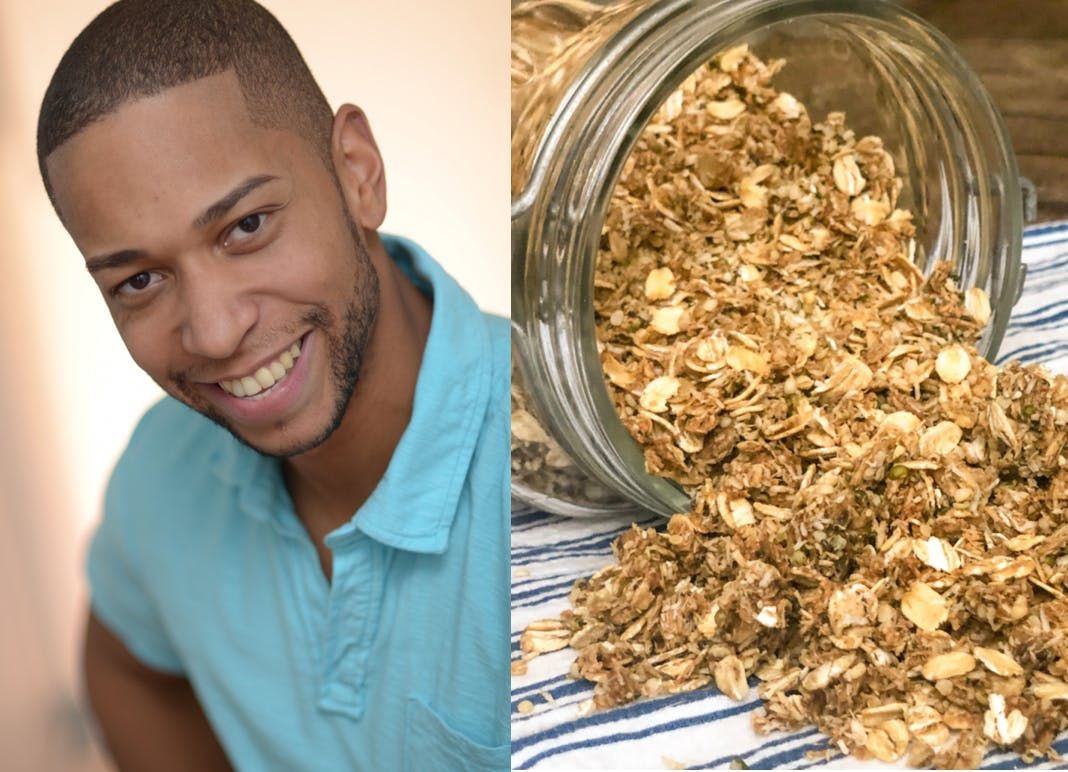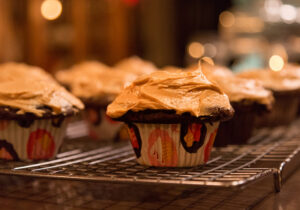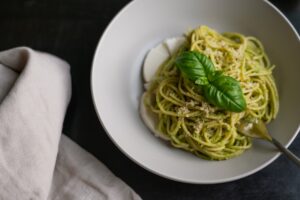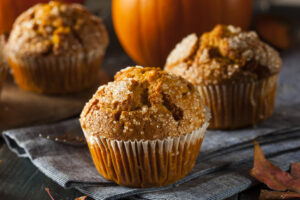Tito Dudley is a chef, entrepreneur, bodybuilder and cancer survivor. With his burgeoning business Simple Eats, Tito (or Chef T) aims to help people find nourishment with simple, healthy meals.
“Food is love; food is medicine; food is spiritual; there’s so much that’s involved in food,” he says. We sat down with him to talk about his experiences with cannabis and cancer, and how food can bring people together.
FOLLOW US ON FACEBOOK & INSTAGRAM
First off, does everyone call you Chef T?
The whole Chef T thing started when I was cooking for a cancer group call First Descents. It’s a group that’s focused on all these different outdoor activities: kayaking, climbing, hiking—and I was the chef. Part of the routine was once the young adults arrive for the week to these retreats, their way of kind of separating themselves from the chaos of dealing with cancer back home was to create this identity or nickname or something that’s empowering. And that’s basically how Chef T came about. Everybody loved it and I just kinda stuck with it for the last seven years.
Before you were a chef, you were a bodybuilder. Can you talk about how these two interests came together?
I started out in the fitness industry as a personal trainer and [have been] personal training for probably over the last 20 years. And in between that I just felt like merging food with fitness was the ideal thing, since they go hand in hand.
Bodybuilding consists of a lot of cooking. You’re constantly eating—eating becomes a job. [You’re eating] all these different types of food or the same food to meet your caloric intake so that you can maintain your weight or gain weight or whatever your goal is. As I got older, I realized how important nutrition is, along with health and lifestyle and how they all intersect. It was really important to me to learn more about food and how to be creative with it.
I was really intrigued on the nutritional side and how food can heal our bodies on that level. So that’s when I decided to go to culinary school. I went to the Natural Gourmet Culinary School, which focused on healthy cooking. They originally started out as a vegan school, then ventured out to vegetarian and slowly ventured out into grass-fed meats.
I really did feel like [food] was a passion of mine, and I saw that just with my own transformation as a bodybuilder. I was amazed on how food can transform your body and you can look one way and need to transform your body and look another way. That alone, the science behind that, the anatomy behind that—the entire art of that was really intriguing to me. So, I felt like I needed these tools and studies to just learn a little bit more on how I can not only physically, visually transform, but also, how can I live a longer lifestyle by eating healthy?
I believe our bodies are amazing—just the healing acts aspect of our bodies, how we can adapt, adjust to our environments. I think that’s all form of art. Bodybuilding itself is a form of art, essentially the tools that you’re using are food and exercise. Combining those two, making sure if you have the right ratio, you’re able to sculpt your body into the sculpture that you want it to be.
For a while I laid low on the whole bodybuilding thing. It takes up a lot of your life socially, mentally, physically, and some may say spiritually as well. So, I took a little break and just really focused on learning about how other people from different cultures cook and how they approach food—[that] was pretty much what I really wanted to focus on over the last five years.
And when did cannabis come into your life?
My mom, four years ago, was diagnosed with triple negative breast cancer and she did not, at first, go the conventional route. She wanted to go all natural and she was doing really well. She actually went on a vegan diet for a little bit, then incorporated some grass-fed meats along the way. And then she was, she was doing actually doing really great and the tumor was actually starting to decrease in size.
I can’t remember when—it was maybe a few months after her diagnosis. We noticed that she was sort of at a standstill. My family and I, we did a ton of research, spoke to a ton of practitioners, naturopathic doctors, and we had a good friend in California who spoke highly of cannabis.
I started to do research, and I was at the point that I think many people can relate [to]. You see your parent or loved one suffering, you’re like willing to do anything. So, I started making cannabis oil at home, slowly introduced it to her, hoping that it could help with some of the side effects that she was dealing with. She eventually started getting radiation, so that was part of my concern as well during that time.
I even tested it on myself before I gave it to my mom just to see how I felt. I wanted to make sure I was giving her the correct dosage and that she’d feel okay.
I wish I had started maybe sooner. I can’t go back in the past and change anything, but that started my whole journey—learning more about cannabis and how it can actually treat cancer survivors and other illnesses that are out there.
And what about yourself? Do you personally consume cannabis?
I have my medical marijuana license here in New York, and I got it because of PTSD from dealing with cancer. After cancer treatment, I noticed over the year, especially as I got older, that even if I got a cold, my mind would play with me. I’d feel like something’s coming back, and I deal with that often.
When someone is diagnosed with cancer, it’s all about that moment: what treatment this person’s going to have. You’re going to go through six months of chemotherapy or you’re going to go through two years of whatever treatment. Nobody really ever talks about the aftereffects.
It’s like when a soldier goes out in war: You’re out there; you’re fighting for your country; you do your job; people pat you on the back. But they never really talk about what happens the next year when you’re not out there on that battlefield. To me, the battlefield was fighting my cancer.
RELATED: PTSD NOW APPROVED FOR MEDICAL MARIJUANA IN NEW YORK
When we talk about cannabis and cancer, typically we think of cannabis as a way to ease the effects of chemotherapy. But in your case, this was a little different. What then, was your experience with fighting the cancer itself?
When I was 15 years old, I was diagnosed with Hodgkin’s disease. My family and I met with a nutritionist—at the time, cannabis, CBD (cannabidiol) was never brought up. Nutritional supplements were brought up like shark cartilage, Q10, garlic—and all of these supplements are great. They actually worked out really well [for me].
Another aspect of that was my faith. I had a lot going on that created the balance to fight back this disease. And I believe when you combine the spiritual aspect of that, the physical aspect of it, and you surround yourself with good people, you have that love, that support that you need. You’re able to fight back whatever you’re dealing with in terms of disease or any trials and tribulations in your life.
So, it was much later that you began to consume cannabis to deal with the trauma that a cancer diagnosis can sometimes bring about?
As I got older, I realized that I dealt with flashbacks. If I walk into a hospital, I can still taste that sort of metal taste in my mouth. It’s like a weird sensation—sometimes if I’m in a hospital setting, I get that because it reflects back to my past. And I think that’s just with anybody that deals with trauma in life.
As I learned more about cannabis and CBD and how other people have used it for PTSD, I was really curious to how [cannabis] would affect me and my state as I got older. It’s only as I got older, I got more nervous, and developed this sort of anxiety, which is so weird.
[Cannabis] really does help me in terms of taking the edge off and just keeping me calm. It’s really about the fear. There’s the fear of it coming back and that fear, that back and forth mental game, can be exhausting for many people. I’m dealing with that fear.
I think there is a place where cannabis can help with the aftereffects of dealing with trauma. And it was a healthy thing for me to talk about it in the group amongst other cancer survivors because I literally thought I was the only one because I never really talked about it.
People should get themselves involved in some sort of cancer group or a group that deals with trauma, where they could come together and talk. I think that’s a really healthy thing for everyone. And I do agree that prescribing cannabis or CBD, whichever works better for the person, can be also be something healthy that they can incorporate it into their lifestyle.
Let’s shift gears and talk something fun that you’ve done: “Frankenfood” on Spike TV.
After I was done culinary school, I literally took my résumé and I sent it everywhere with my eyes closed. I just didn’t even care. I really wanted to go on a show. I’ve done some acting before, and I love being in front of the camera. I love the experience of taking food, creating art around it and showcasing it in a very fun artistic kind of way. A lot of people in my family are artists. My dad—he’s a painter, a drawer and my sister, she paints and draws, and I grew up painting and drawing as well. But food became sort of like my groove, I guess you could say.
So, “Frankenfood”—basically you’re creating some outrageous dish or combination that would create some sort of wow factor. It was a lot of work for sure. I think I was working 20 hours a day for like a week straight, but it was a really great experience. I don’t even remember how I came up with the cheesecake burger. But I have to tell you it is—I’m not saying this because I made it—but it was actually really good.
It was just a really cool experience to meet all the chefs and cooks from all over the world, just coming together and having a great time in the kitchen.
It sounds like food is your medium, your way of connecting with people and exploring the world.
Absolutely. I had the opportunity to go to Russia and Finland. I’ve been across Germany and France. And going to Panama, where my family’s from on my mom’s side, and all the Caribbean islands, I was able to develop a palate for many types of cuisines at a very young age.
And I think that’s really important. I think if more people learn about other people’s cultures and community, we can start to relate to each other all on different levels. And I’ve had that experience at a very young age. Food is love; food is medicine; food is spiritual; there’s so much that’s involved in food.
What do you have planned for the future?
My goal is to turn Simple Eats into online culinary school—not to compete with big schools, but to maybe that first step before culinary school. I really want to keep it as simple and easy—a place for people to just learn more about food, learn more about cooking at home, and hopefully create this experience of making just simple, easy meals—whether it’s for themselves or their loved ones.
So that’s my goal and I would love to incorporate some sort of cannabis and CBD in there—I’m sure that will come down the line as well. It’s definitely the process of building a business.
Photo credit: Tito Dudley aka Chef T
If you’re new to cannabis and want to learn more, take a look at our Cannabis 101 index of articles. And if you have questions about cannabis, ask them and our community will answer.






